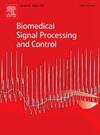Mental stress detection and performance enhancement using fNIRS and wrist vibrator biofeedback
IF 4.9
2区 医学
Q1 ENGINEERING, BIOMEDICAL
引用次数: 0
Abstract
Daily life activities frequently expose individuals to varying levels of mental stress, which can adversely affect their performance. Therefore, it is crucial to develop effective strategies for stress management and performance improvement. This paper presents a comprehensive, portable, and real-time biofeedback system aimed at improving individuals’ stress management capabilities, ultimately leading to enhanced mental task performance. The system consists of a real-time brain signal acquisition device, a wireless vibration biofeedback unit, and a software-based program for stress level classification. Notably, the system is designed to minimize the time delay by efficiently integrating all components. Various signal processing and feature extraction techniques combined with machine learning have been employed for online stress detection. The experimental results demonstrate an accuracy of 83% and a recall of 92% in detecting true levels of mental stress in the stress classification module. In addition, the complete biofeedback system is tested on 20 participants in a controlled experimental setup, revealing a 55% reduction in stress levels and a 24.5% improvement in task accuracy. These findings support the effectiveness of the proposed system in stress management and performance improvement, validating the core premises of stress reduction and performance improvement through reward-based learning.
求助全文
约1分钟内获得全文
求助全文
来源期刊

Biomedical Signal Processing and Control
工程技术-工程:生物医学
CiteScore
9.80
自引率
13.70%
发文量
822
审稿时长
4 months
期刊介绍:
Biomedical Signal Processing and Control aims to provide a cross-disciplinary international forum for the interchange of information on research in the measurement and analysis of signals and images in clinical medicine and the biological sciences. Emphasis is placed on contributions dealing with the practical, applications-led research on the use of methods and devices in clinical diagnosis, patient monitoring and management.
Biomedical Signal Processing and Control reflects the main areas in which these methods are being used and developed at the interface of both engineering and clinical science. The scope of the journal is defined to include relevant review papers, technical notes, short communications and letters. Tutorial papers and special issues will also be published.
 求助内容:
求助内容: 应助结果提醒方式:
应助结果提醒方式:


